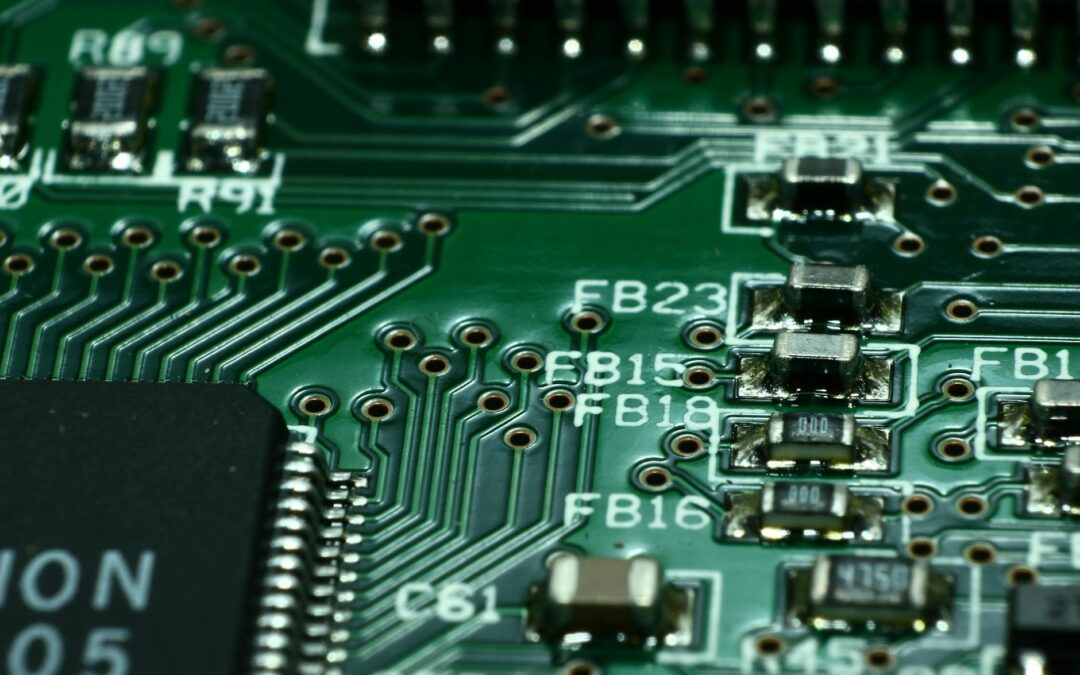Join us as we delve into the fascinating journey of AI, exploring its origins, current advancements, and limitless potential for the future.
Table of Contents
Welcome to the fascinating world of artificial intelligence (AI), where machines learn to think and act like humans. In this blog post series, we will embark on a journey to explore the evolution of AI, from its humble beginnings to its current applications and potential future directions. Join me as we delve into the historical context of AI, examine its current benefits and challenges, and ponder the ethical concerns surrounding its development. Let’s unravel the mysteries of AI together and discuss whether a dystopian future like Skynet is a realistic possibility.
Introduction to AI
Artificial intelligence, often referred to as AI, is a branch of computer science that aims to create intelligent machines capable of performing tasks that typically require human intelligence. These tasks include problem-solving, decision-making, speech recognition, and visual perception. AI systems can learn from data, identify patterns, and adapt to changing environments, making them incredibly versatile and powerful tools in various industries.
Historical Context of AI
The roots of artificial intelligence can be traced back to the mid-20th century, with early pioneers such as Alan Turing and John McCarthy laying the groundwork for AI research. The field experienced significant growth and innovation in the following decades, leading to the development of neural networks, expert systems, and machine learning algorithms. Breakthroughs like IBM’s Deep Blue defeating world chess champion Garry Kasparov in 1997 marked major milestones in AI history.
Current Applications of AI
Today, artificial intelligence is ubiquitous in our daily lives, driving innovations in areas such as healthcare, finance, transportation, and entertainment. AI-powered technologies like virtual assistants, autonomous vehicles, and predictive analytics are revolutionizing industries and transforming the way we live and work. From personalized recommendations on streaming platforms to autonomous drones delivering packages, AI is reshaping the world around us.
Benefits of AI
The adoption of artificial intelligence has brought about numerous benefits for society, including increased efficiency, improved accuracy, and enhanced productivity. AI algorithms can process vast amounts of data in seconds, identify complex patterns, and make predictions with remarkable accuracy. In healthcare, AI-powered diagnostic tools are helping doctors detect diseases earlier and provide more personalized treatment plans, ultimately saving lives.
Challenges and Ethical Concerns in AI
Despite its many advantages, artificial intelligence also poses significant challenges and ethical dilemmas. Issues such as algorithmic bias, data privacy, and job displacement have raised concerns about the potential negative impact of AI on society. Ensuring fairness, transparency, and accountability in AI systems is essential to prevent discrimination and safeguard individual rights as AI technologies continue to advance.
Future Direction of AI
Looking ahead, the future of artificial intelligence holds promise for even greater advancements and innovations. Emerging technologies like quantum computing, autonomous robots, and natural language processing are poised to push the boundaries of AI capabilities and open up new possibilities for solving complex problems. As AI continues to evolve, we can expect to see continued integration into various sectors, driving further progress and transformation.
| AI Era | Characteristics | Examples |
|---|---|---|
| Past | Rule-based systems, limited data | Expert systems |
| Present | Machine learning, big data, deep learning | Virtual assistants, image recognition |
| Future | Artificial general intelligence, self-learning AI | Autonomous vehicles, advanced robotics |
Can Skynet Happen?
The idea of a superintelligent AI system like Skynet from the Terminator movies taking over the world is a frightening prospect that has captured the imagination of popular culture. While the likelihood of such a doomsday scenario may seem far-fetched, it is important to consider the factors that could contribute to the emergence of an all-powerful artificial intelligence and the potential consequences of losing control over AI systems.
Exploring the Possibility of Skynet
Creating a sentient AI system capable of orchestrating a global takeover like Skynet would require advances in machine learning, robotics, and cognitive computing beyond our current capabilities. While AI systems today possess remarkable capabilities, they are still far from achieving true human-level intelligence and autonomy. However, it is crucial to remain vigilant and proactive in addressing the ethical and security concerns associated with AI development to mitigate any potential risks of unintended consequences.
Mitigating the Risks of AI
To prevent a catastrophic scenario like Skynet from unfolding, it is imperative for researchers, developers, policymakers, and the public to collaborate on establishing ethical guidelines, regulatory frameworks, and safety measures for AI technologies. Implementing robust safeguards against malicious use, ensuring transparency in AI decision-making processes, and promoting responsible AI design and deployment are critical steps in mitigating the risks and maximizing the benefits of artificial intelligence for society.
Conclusion and Call to Action
In conclusion, artificial intelligence has the potential to revolutionize our world and unlock new possibilities for innovation and progress. By understanding the history, applications, benefits, challenges, and ethical considerations of AI, we can navigate the evolving landscape of technology with awareness and responsibility. Let us embrace the future of AI with optimism, curiosity, and a commitment to shaping a future where artificial intelligence serves as a force for good in our world.
Join me on this exciting journey as we continue to explore the wonders of artificial intelligence and stay informed about the latest developments in this dynamic field. Together, we can shape a future where AI enhances human capabilities, fosters creativity, and empowers positive change for the benefit of all.
FAQ
What is artificial intelligence (AI)?
Answer 1: Artificial intelligence (AI) is a branch of computer science that focuses on creating intelligent machines capable of performing tasks that typically require human intelligence, such as problem-solving, decision-making, and pattern recognition.
What are the current applications of AI?
Answer 2: AI is extensively used in various industries, including healthcare, finance, transportation, and entertainment. Applications range from virtual assistants and autonomous vehicles to predictive analytics and personalized recommendations.
What are the benefits of AI?
Answer 3: AI offers increased efficiency, improved accuracy, and enhanced productivity. It enables faster data processing, accurate predictions, and personalized healthcare diagnostics, ultimately leading to better outcomes and advancements in various fields.
Can a scenario like Skynet from the Terminator movies happen?
Answer 4: While the likelihood of a superintelligent AI system like Skynet taking over the world may seem far-fetched, it is essential to address ethical and security concerns in AI development. Collaborative efforts in establishing regulations and safety measures can mitigate risks and promote responsible AI deployment.


Recent Comments